Episodes
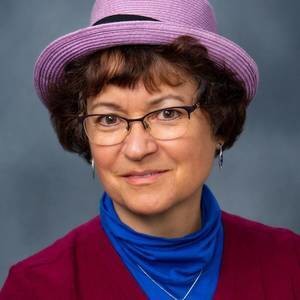
Monday Mar 28, 2022
Ep 138 - Darcia Narvaez, Insights About Humanity for a Suffering World
Monday Mar 28, 2022
Monday Mar 28, 2022
- Darcia Narvaez, who holds a Ph.D. in psychology from the University of Minnesota, is a prolific public intellectual who uses many tools of multimedia communication to do research and to address needs of everyday people. Her work enhances and taps deeply rooted wisdom about human nature so that it can be applied in everday tasks, such as parenting.
- She is a Professor of Psychology Emerita at the University of Notre Dame. Links to much of her work can be found at her personal website, as well as her Notre Dame faculty site.
- A capstone of Prof. Narvaez’s interdisciplinary scholarship is her 2014 book, Neurobiology and the Development of Human Morality: Evolution, Culture, and Wisdom. See her summary of the book.
- She received the Expanded Reason Award, a distinctive salute to innovative research in the spirit of Pope Benedict XVI, in 2017. The honor is bestowed by the Benedict XVI Vatican Foundation.
- In recent years, she has invested much research in a source of useful insights for families drawn from the concept of a nest for children that humans have inherited from their ancestors. Learn more about this work at org and evolvednest.org.
- Also see her blogs, including one she writes for Psychology Today.
Paul and Bill have interviewed Darcia Narvaez previously in episodes 55-56 and 96.
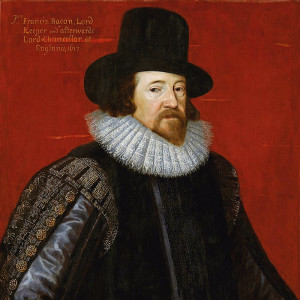
Monday Feb 28, 2022
Ep 137 - Francis Bacon and the New Organon
Monday Feb 28, 2022
Monday Feb 28, 2022
As the emcee noted at a concert here in Lander, a Musical History Tour, the Renaissance--the period when Europe revived its intellectual life by re-evaluating the writings of the Hellenistic past--ends around the year 1600, give or take. By that time, the focus had shifted toward going beyond the ancients instead of merely revisiting their achievements. This shift in focus happened on a different schedule in different fields, to be certain. Music may have been well ahead of the ancients already in the high medieval period. The Scholastics, and indeed their Arabian predecessors, while firmly rooted in Aristotle and the Neoplatonists, were already progressing beyond those foundations in the thirteenth century. On the other hand, painting and sculpture may not have outstripped the Greeks and Romans until the nineteenth century.
In any case, the seventeenth century would be the one in which Greek mathematics and Aristotelian natural philosophy gave way precipitously to new approaches. Algebra, lurking in the background of Greek thought and poking its head above the canopy in Arabian and Italian mathematics, would finally spawn analytic geometry and calculus. The focus and methods of natural philosophy would shift in many ways, including the use of mathematics and a great increase in the number of people collecting observations and conducting experiments and discussing their results with others. The existing sciences of astronomy, mechanics, botany, and zoology would be transformed, and chemistry and geology would be born outright. Inventions like the telescope and microscope would begin to reveal unsuspected layers of richness in the universe.
-Bacon: bio and politics
-The Reformation had to attack Scholastic *theology* but the universities continued to be heavily Aristotelian
-Aristotle and the distinction between philosophy and science that would be inverted by the 19th century
-Aristotle's focus on deduction and Bacon's polemical critique of the syllogism: "The New Organon"
-The role of induction and statistical reasoning; Bacon's blind spot for mathematics and his tables
Image: Francis Bacon by Paul van Somer, courtesy Wikimedia (By Paul van Somer I - pl.pinterest.com, Public Domain, https://commons.wikimedia.org/w/index.php?curid=19958108)
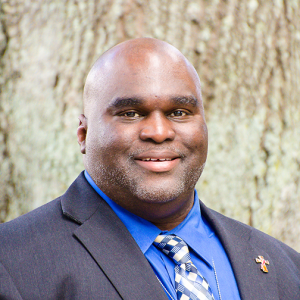
Monday Jan 31, 2022
Ep 136 - Deacon Harold: Life Rich in Reality, Reality Rich in Life
Monday Jan 31, 2022
Monday Jan 31, 2022
Deacon Harold Burke-Sivers (deaconharold.com) is a Catholic deacon and public speaker. Bill and I had the privilege of interviewing him earlier this month.
-
Deacon Harold Burke-Sivers is one of the most incisive and authentic Catholic speakers and authors who have arisen to serve the New Evangelization, including an outreach to the younger generations who hunger to combine secular reality and meaningful Church values.
-
Paul and Bill know Deacon Harold through our connections to the University of Notre Dame. But the Deacon’s reputation has spread internationally; as a scholar and a presenter nicknamed “the Dynamic Deacon,” he offers large groups from many backgrounds fresh resources for spiritual renewal, including the refreshment of male spirituality. This topic is masterfully addressed in his book, Behold the Man.
-
Deacon Harold has appeared frequently on the EWTN Catholic radio and television networks. Recently, he took part in a discussion on racism and Catholic responses in an episode of the “Franciscan University Presents” program.
-
A number of other books authored by Deacon Burke-Sivers over the years can be found here.
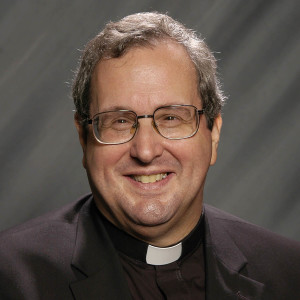
Monday Dec 20, 2021
Ep 135 - A Visit to the Universe of Fr. Robert Spitzer, SJ
Monday Dec 20, 2021
Monday Dec 20, 2021
- Paul and Bill were privileged to talk with Father Robert Spitzer, SJ, the founding director of the Magis Center in Orange County, California.
- Father Spitzer’s biography includes service as the president of Gonzaga University and the authorship of numerous books about various aspects of theology, philosophy, spirituality, apologetics, happiness and the meaning of life, and much more.
- He has produced a huge collection of materials for online use. His main websites are the Magis Center site, com, and PurposefulUniverse.com. In this interview, he describes the sites and how our listeners can select and use materials that may be particularly helpful.
- We discuss the four levels of happiness, which represent an insightful roadmap for spiritual growth and movement toward a culture of life. His excellent book, Healing the Culture, gives a good grounding in this approach.
- Another area of special interest for Father Spitzer is the compatibility of appeals to science and faith—which is also a basis for this TSSM podcast series. In this interview he notes that younger scientists are statistically more likely to believe in God than scientists over age 40.
- Young people don’t know what’s going on in current science, in studies of near death experiences, scrutiny of the Shroud of Turin, and many other areas of research that contribute to religious faith. A good grounding for his work connecting science and faith in Jesus Christ is New Proofs for the Existence of God .
- Yet another area of deep interest for Fr. Spitzer is the need for a full appreciation of, and deep personal engagement with the summit of the Catholic faith, the Holy Eucharist. In this interview, he refers to the John 6:30-52 as a portion of Scripture that powerfully asserts the Catholic understanding of the Blessed Sacrament as the body and blood of Christ.
- You can see Fr. Spitzer on EWTN in his weekly series, “Father Spitzer’s Universe.”
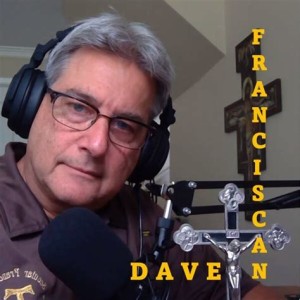
Monday Nov 22, 2021
Ep 134 - Bill on Journalism and Truth with Franciscan Dave
Monday Nov 22, 2021
Monday Nov 22, 2021
David Seitz, OFS, is a long-time professed member of the Secular Franciscan Order who holds an M.A. in theology from Sacred Heart Seminary in Detroit. He has written a book, available on line, called Come Let Us Worship: Reflections on the Words and Prayers of the Mass. He produces podcasts, videos, blogs, and speaks publicly, offering reflection for spiritual growth based on the life and works of St. Francis of Assisi. Find him at tauministries.com and, on YouTube, look for his nickname, Franciscan Dave.
Bill, also a Secular Franciscan, recently appeared on Dave's podcast, and I spoke with Bill about that conversation regarding journalism and virtuous communication. We discuss whether missionaries and scientists are also journalists and the spiritual value of seeking and spreading truth. Be sure to find their original conversation at Dave's site.
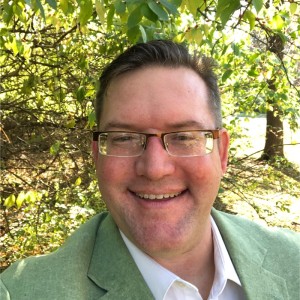
Thursday Oct 28, 2021
Cybersecurity Bonus Episode with Matthew Cloud
Thursday Oct 28, 2021
Thursday Oct 28, 2021
Here's our pre-conversation with Matthew Cloud prior to the full interview. In this segment we talk a little bit about the Ubuntu distro, the ubuntu philosophy of computer science, and 4th and 5th generation tools for generating working code to solve computer science problems in the context of Matthew's role connected to a grant for cybersecurity education through Ivy Tech and other schools in several states.

Tuesday Oct 05, 2021
Episode 133 - Cybersecurity Education as a Vocation with Matthew Cloud
Tuesday Oct 05, 2021
Tuesday Oct 05, 2021
- Paul and Bill discussed computer education and cyber-security with Matthew Cloud, professor of the practice in the computer science program at Holy Cross College in Notre Dame, IN.
- Cloud has extensive experience in education, not only through classroom teaching at schools including Indiana’s Ivy Tech network of community colleges, but also through project management, curriculum development, and strategic collaborations with other a range of colleges and universities. Cloud holds a bachelor’s degree from Texas A&M University and a master’s degree in biomedical engineering granted jointly by the University of Texas and the UT Southwestern Medical Center.
- He is working within the Holy Cross College science department to grow a distinctive undergraduate program in computer science. Through a different understanding of essential skills and characteristics, such a program could increase access to meaningful information technology careers among students with more diverse backgrounds of knowledge, training, interests, socio-economic resources, etc. Increasing the access to such positions offers advantages to the students, to companies with growing IT and cybersecurity needs, and to the safety and sustainability of societies. You can go to cyberseek.org and get the latest estimates of how many US cybersecurity jobs are currently open, waiting for applicants. Prof. Cloud says that number has been hovering around 500,000.
- One of the multi-school projects he is helping to lead is funded by a grant from the National Centers of Academic Excellence in Cybersecurity. His focus on a win-win balance between the demand for tomorrow’s computing/AI/cybersecurity/data science professionals and the supply of motivated, well-trained students pursuing these fields takes the form of several partnerships funded by prestigious grants.
- The goal of attracting more US students, of all backgrounds, into computer-related studies, whether they be focused on engineering or on different fields of study (including the liberal arts, philosophy, and more), is being pursued by many institutions. You can visit http://code.org to see one approach for encouraging young people to consider a computer-related career.
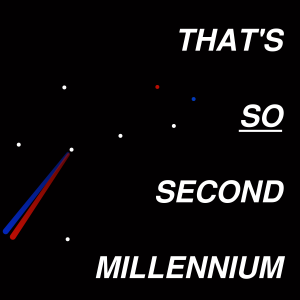
Monday Sep 13, 2021
Ep 132 – The Long Road to Mathematical Physics
Monday Sep 13, 2021
Monday Sep 13, 2021
A solo episode from Paul today inspired by the content of Wyoming Catholic College’s Deductive Reasoning in Science course (SCI 301).
- Greek arithmetic and the Pythagoreans
- The crisis of incommensurables (irrational numbers)
- The triumph of geometry over arithmetic
- Emphasis on axiomatic systems and proofs: Euclid
- Archimedes: physics within the Euclidean paradigm
- Aristotle and the medieval: qualitative and categorical accounts of motion
- The long reach of ancient methods and paradigms
- Galileo and his big ideas, shaky proofs, and tedious Euclidean methodology
- 16th century algebra and the need for negative numbers to simplify the cubic equation
- Galileo’s multiple cases of proportions of times, spaces, speeds in the Euclidean paradigm
- Overturns in algebraic notation and the advent of analytical geometry in the 17th century
- The looming role of calculus in Galileo’s attempts to argue by means of infinite parallels
- Imaginary and complex numbers in the solution of cubic equations with real roots, real physical problems
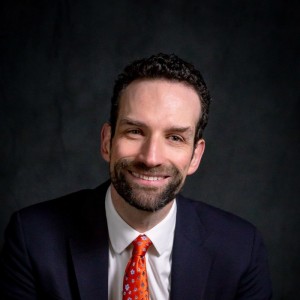
Monday Aug 23, 2021
Ep 131 - Jordan Wales and the Moral Theology of AI
Monday Aug 23, 2021
Monday Aug 23, 2021
- Jordan Wales, PhD, who teaches theology at Hillsdale College in Michigan, spoke with Paul and Bill about his research at the intersection of robotics and religion.
- He discussed a compelling concern in the future relationship between human beings and technology. In particular, the concern, about which he spoke at the 2021 conference of the Society of Catholic Scientists, dealt with the interaction between individuals and the entities Wales calls “apparently personal artificial intelligence” (APAI).
- APAI products are already becoming commonplace in the world of commerce, as this BBC article discusses. People will be increasingly able to purchase, and interact with, virtual friends or babysitters or therapists, for example, Dr. Wales pointed out.
- This raises moral questions related to personhood, covering both the APAI product and the user of that product. The product will not have an inner life representative of what we think of as a person, although the definition of person has an interesting history influenced by scholars such as Saint Augustine. Human beings can express and influence their own understandings of personhood through their interactions with APAI. These understandings may lead to various types of interaction, ranging from pride and manipulation to excessive empathy, and one middle ground would consist of appreciation for the humanity that underlies the production and information/formation of the APAI product, Dr. Wales pointed out.
- As the use of APAI grows, there are also concerns about how the aggregated human “input” into the experience of APAI personalities may cause a flattening-out of human perspectives on the unique qualities of each person. One current example of the trajectory for these concerns comes from the use of the auto-correct feature by Google for writing. Long-term possibilities include such features of interactions not only affecting our choices of words and expressions, but also influencing what subjects we think about and how we think about them. This highlights the moral principle that ultimately we must retain our unique personal identities and wisely discern how to exercise our responsibility and restraint in allowing some possible applications of APAI to influence us, Dr. Wales said.
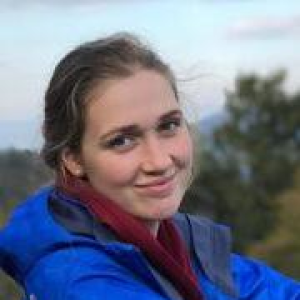
Monday Aug 09, 2021
Episode 130 - Natasha Toghramadjian’s Research into Earth-Shaking Impacts
Monday Aug 09, 2021
Monday Aug 09, 2021
- Welcome to this 130th episode of our podcast. Here’s a lively conversation between two geoscientists—testifying to the opportunities for Society of Catholic Scientists (SCS) members to enjoy discussions which are at once elevated by their personal values and grounded in their diverse, expert explorations of God’s creation.
- Paul spoke with Natasha Toghramadjian, a Ph.D. student in geophysics—and seismology in particular—at Harvard University. She performs wide-ranging research on earthquake dynamics and risks in California and around the world. She spent a year in Armenia on a US Fulbright research grant to design a study on future earthquakes there and the connection between risk preparedness and regional politics.
- Toghramadjian, a student member of the SCS, was a speaker at the 2021 national conference in Washington, DC. See the video of her talk here, at about the 7-hour, 19-minute mark. The talk was titled, “Earthquakes, their Consequences, and the Jesuit Pioneers of Seismology.”
- This podcast conversation included Toghramadjian’s mentions of the earthquake hazards in Oklahoma and the Newport-Inglewood Fault in California, considered more dangerous than the San Andreas Fault for the Los Angeles region. A note from Natasha: at one point just before the 16 minute mark, she said "40 meters" when she meant "40 miles onshore."
- She discussed with Paul the common but wrong view that we hold Christian beliefs despite natural evidence. Scientists use natural evidence, including the enduring laws of physics, chemistry, and biology, in their attempts to understand God’s creation more fully. The two agreed that science and religion are in harmony as paths for pursuing the truth amid great mystery.
- A “keeper” quote from Toghramadjian: “Every human you encounter is an imperfect representation of whatever they say they stand for. . . . It’s very easy to point to a bad example, a person, rather than point to the source material that we’re all trying to follow but we all inevitably fall short of because we’re fallen.”
Show notes prepared by TSSM co-host Bill Schmitt

